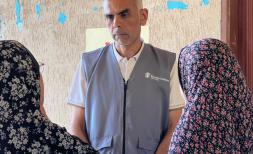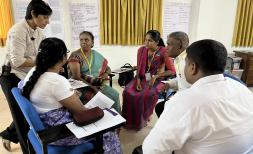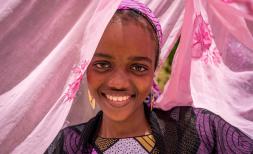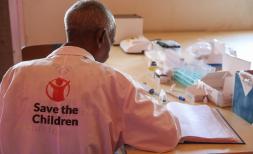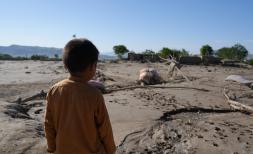Afghanistan: what is life like for children since the Taliban takeover?
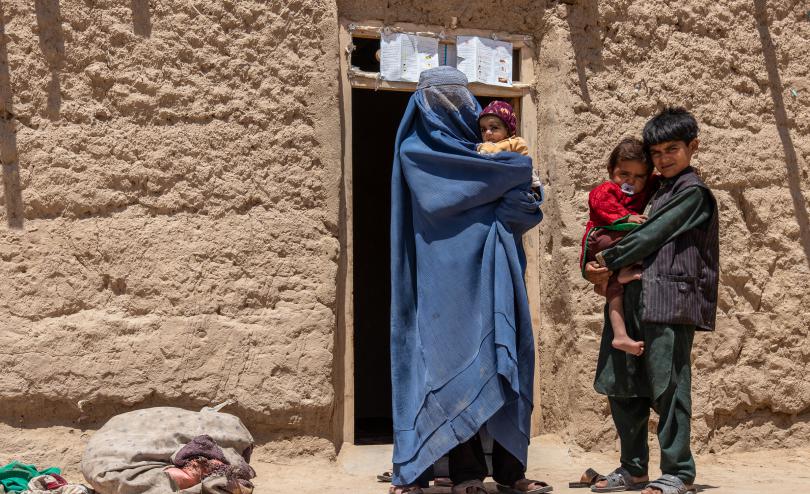
Sonia* and her family outside their home in Faryab province, Afghanistan.
Poverty, unemployment and food prices have skyrocketed in Afghanistan following the Taliban’s takeover in August 2021. A year on, and almost half of the population is going hungry. They are in need of urgent support to survive.
{cta | We stand side by side with children in the world’s toughest places. | https://donate.savethechildren.org/en/donate/afghanistan-emergency-anniversary | Support our work
Children are facing extreme hunger, exploitation and a loss of their education, particularly girls. Girls are almost twice as likely as boys to go to bed hungry and almost 1 in 2 of girls are not attending school, compared to 1 in 5 boys. Parents are being forced to take desperate measures feed their children, including withdrawing them from school, sending them to work, and in some cases, selling their children to cover a debt or to get money to buy food for their other children.
Children are sad, worried and scared. Yet, they haven’t lost hope. Now, is not the time to turn our backs on Afghanistan’s children.
In their own words, read the stories of children and their families living in Afghanistan.
12-year-old Temor*
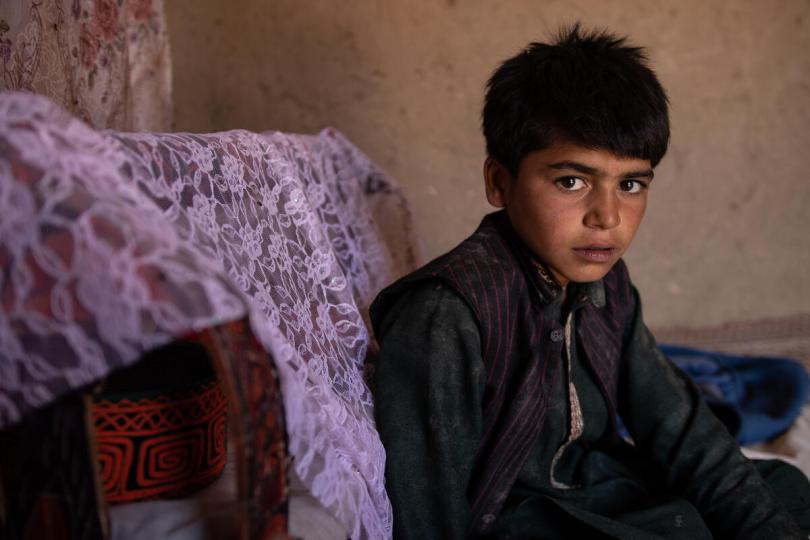
Temor in his family home.
Temor lives with his mother, his two brothers and their 7-month-old sister. Their community is very remote, and they don’t have access to clean water, a permanent health clinic or a school. Like most of the children in his community, Temor has never been to school. Temor’s baby sister is struggling for her life. She is suffering from severe acute malnutrition and her skin hangs loosely from her tiny body. His 2-year-old younger brother still cannot walk or talk – malnutrition and stunting are taking its toll. Temor tells us:
“Everything is worse [now].
“We have nothing to drink and nothing to eat.
“We eat three times a day but only pieces of bread. Before, we were eating some good things.
“I wish I was older so I could work and make money. I wish I could go to the mosque and to school.
“We want our situation to improve.
“We don’t want war in Afghanistan.
“I would be happy if I went to the mosque, to the school, to have clothes to wear and bread. If my sister’s health improves, I will be happy.”
Temor’s mother, Sonia*, also shared her story with us, she says:
“If we buy something to eat, we cannot buy something to burn [for the fire]. And if we buy something to burn, then we can’t buy something to eat. If we buy something to eat, we can’t buy something to wear.
“Our children are sick, and we cannot afford medicine for them. My children are hungry and I can’t find something to feed them and we can’t see a doctor. My children are sick and one of them can’t walk because of the hunger.
“My heart wants my son to go to school and become a teacher, a doctor, a good person.”
However, the situation for Temor and his family isn’t unique. Many families across the country are struggling to grapple with the mounting impact of a crippling economic crisis and drought. This includes families such as Sadia* and Meena’s.
Sadia and Meena*’s story
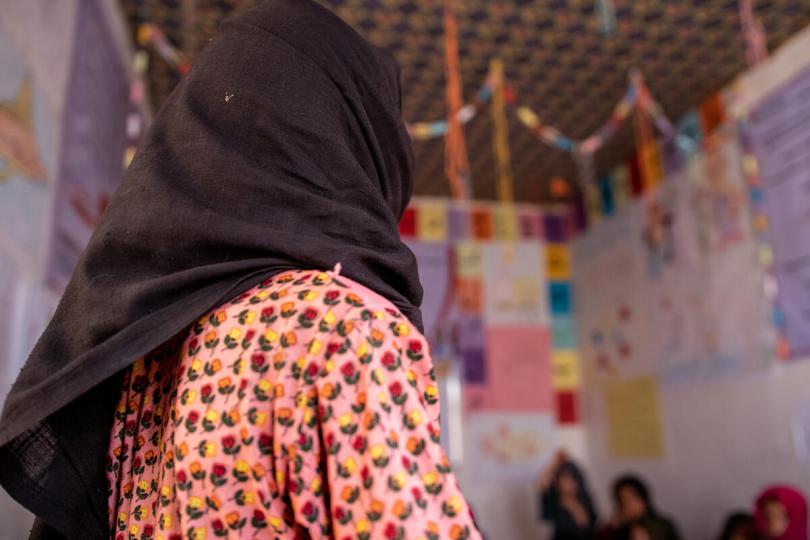
Meena at a Save the Children Child Friendly Space.
Meena and her family have been pushed to take desperate measures to survive the impacts of the economic crisis in Afghanistan. Meena and her siblings became so hungry and sick that her father was forced to arrange for Meena to marry an older man. They were paid half of the money for the engagement and would be paid the other half of the money when the marriage took place. Meena’s mother, Sadia* tells us:
“I said [to the people arranging the marriage] that she’s small, we will not arrange the marriage, let’s stop here. We don’t have the right to give her [for marriage]. This is why we didn’t give her up and I said no to them, and they left.
“At the start when we first arranged my daughter’s marriage, she was fine. But later, she stopped speaking… she stopped playing and going outside.”
Meena’s father used some of the money to buy food for his family, but then he took the rest and left. The family have not heard from him since. Sadia has now stopped her daughter’s marriage, but life continues to be extremely challenging. She worries about how she will continue to support her children. She continues:
“My life has changed. My children are in bad condition, and they don’t have anything to eat.
“Meena wants to go outside, she wants to go to school.”
One year since the Taliban took control of the country, this is life for children in Afghanistan.
Save the Children has been supporting communities and protecting children's rights across Afghanistan since 1976. This includes during periods of conflict, regime change, and natural disasters. Since the Taliban regained control in August 2021, we’ve been scaling up our response to support the increasing number of children in need. We’re delivering health, nutrition, education, child protection, shelter, water, sanitation and hygiene and food security and livelihoods support.
With the help of our supporters, we have enrolled Temor and his siblings into school, provided them with books and a school bag, as well as medicine when they have become sick.
Our child protection team has been supporting Sadia, Meena and their family with psychosocial support. We have also enrolled Meena and her sister in our Child Friendly Space where they can play and learn.
Children and their families in Afghanistan want the international community to take action to save their lives – and their futures. Your support is critical.
How can I help children in Afghanistan?
Send a message of hope to girls in Afghanistan.
Donate to children in crisis and help children in countries like Afghanistan.
